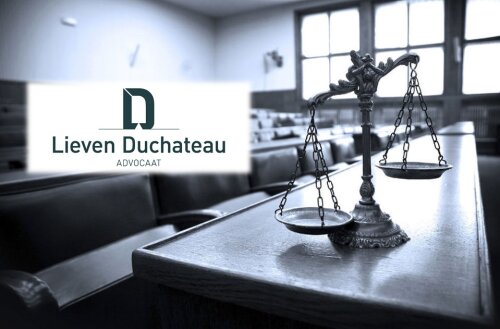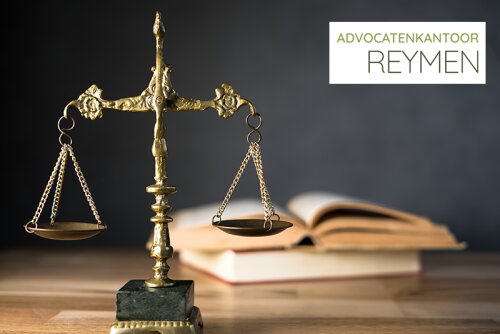Best Water Law Lawyers in Sint-Truiden
Share your needs with us, get contacted by law firms.
Free. Takes 2 min.
List of the best lawyers in Sint-Truiden, Belgium
About Water Law in Sint-Truiden, Belgium
Water Law in Sint-Truiden, Belgium, covers the legal framework and regulations that govern the use, management, and protection of water resources within the region. This includes rivers, streams, underground water, and public waterways. As a municipality within the province of Limburg, Sint-Truiden follows both national Belgian water legislation as well as local and regional regulations set forth by the Flemish Region. Water Law addresses a broad range of issues, such as water rights, pollution control, property boundaries related to water bodies, flood risk management, and usage permits for activities affecting water resources.
Why You May Need a Lawyer
Seeking the help of a lawyer who specializes in Water Law may become necessary in a variety of situations. Common scenarios include disputes over water rights related to property borders, construction projects impacting local waterways, agricultural use of water, and compliance with regulations regarding pollution or water drainage. Lawyers can also assist with obtaining the required permits for drilling wells, building near water courses, or modifying water flows. If you are facing enforcement actions from local authorities, have conflicts with neighbors over water usage, or are concerned about environmental compliance, a lawyer’s guidance is crucial to protect your interests and ensure you follow all applicable laws.
Local Laws Overview
In Sint-Truiden, Water Law is shaped by national legislation, Flemish regional policies, and municipal bylaws. Key legal aspects include:
- Licensing and permits for water extraction, discharge, and construction activities near or on water bodies
- Regulations on surface water and groundwater management to prevent overuse and contamination
- Flood prevention and management requirements due to the presence of local rivers and the region's vulnerability to excessive rainfall
- Enforcement of the Flemish Decree on Integrated Water Policy (Decree of 18 July 2003) that outlines sustainable water management and protects aquatic ecosystems
- Obligations to maintain private and public watercourses to prevent blockages and mitigate flood risks
- Rules regarding run-off water and drainage, especially relevant for agricultural and industrial activities
- Specific municipal regulations enforced by the City of Sint-Truiden concerning minor waterways, drainage systems, and property development near water reserves
Frequently Asked Questions
What are my responsibilities as a property owner near a watercourse in Sint-Truiden?
You are required to maintain the banks and ensure they are free from blockages that could affect water flow. You must also respect building restrictions and obtain permits for any works near water bodies.
Do I need a permit to extract groundwater for private or agricultural use?
Yes, in most cases, you need a permit from the Flemish Environment Agency (Vlaamse Milieumaatschappij) before drilling and extracting groundwater, aside from small-scale domestic uses.
What should I do if my property is affected by flooding?
Report the incident to local authorities, document the damage, and contact your insurance provider. Municipal and regional governments offer advice and may provide support for flood prevention measures.
Are there restrictions on discharging wastewater into rivers or streams?
Yes, strict regulations control the discharge of wastewater to prevent pollution. You must obtain the necessary environmental permits, and unauthorized discharge is subject to penalties.
Can I build a structure close to a stream or ditch on my property?
Building near water bodies is heavily regulated. You must check with both the municipality and regional authorities for setback requirements and permit needs before starting any construction.
What are the common causes of water disputes between neighbors?
Typical disputes involve drainage issues, altering natural water flow, blocking watercourses, and unauthorized extraction or use of shared water resources.
Does the City of Sint-Truiden offer support for sustainable water usage?
Yes, local authorities promote sustainable water management and may provide guidance or incentives for rainwater reuse, water-saving installations, and environmentally friendly practices.
How is agricultural water use regulated in Sint-Truiden?
Agricultural water use must comply with both environmental regulations and water extraction permit requirements, especially during periods of drought or in vulnerable groundwater areas.
What legal steps can be taken if my neighbor’s construction is causing waterlogging on my land?
You can file a complaint with local authorities. A lawyer can help assess liability, mediate the dispute, and pursue compensation or remedial measures if necessary.
Who oversees enforcement of Water Law regulations in Sint-Truiden?
Enforcement is shared between the City of Sint-Truiden, the Flemish Environment Agency, and the provincial government, depending on the nature of the issue and its location.
Additional Resources
If you need more information or support regarding Water Law in Sint-Truiden, the following resources are valuable:
- City of Sint-Truiden’s Environmental Services Office - for permits, local regulations, and support
- Flemish Environment Agency (Vlaamse Milieumaatschappij) - for permits, groundwater issues, and water quality information
- Provincie Limburg Water Management Department - for regional water policies and initiatives
- Legal aid organizations and the Flemish Bar Association - for finding a qualified water law lawyer
- Flood risk and prevention information from the Flemish Government’s Environment Department
Next Steps
If you require legal assistance involving Water Law in Sint-Truiden, start by gathering all relevant documents such as property deeds, permits, correspondence with authorities, and any evidence such as photographs or reports. Contact the City of Sint-Truiden’s environmental office to clarify immediate administrative questions. Consult a lawyer who specializes in environmental or water law for a professional assessment of your situation and guidance on the next steps. Make sure to act promptly, especially if regulatory deadlines apply or if immediate risks to your property or health exist.
Lawzana helps you find the best lawyers and law firms in Sint-Truiden through a curated and pre-screened list of qualified legal professionals. Our platform offers rankings and detailed profiles of attorneys and law firms, allowing you to compare based on practice areas, including Water Law, experience, and client feedback.
Each profile includes a description of the firm's areas of practice, client reviews, team members and partners, year of establishment, spoken languages, office locations, contact information, social media presence, and any published articles or resources. Most firms on our platform speak English and are experienced in both local and international legal matters.
Get a quote from top-rated law firms in Sint-Truiden, Belgium — quickly, securely, and without unnecessary hassle.
Disclaimer:
The information provided on this page is for general informational purposes only and does not constitute legal advice. While we strive to ensure the accuracy and relevance of the content, legal information may change over time, and interpretations of the law can vary. You should always consult with a qualified legal professional for advice specific to your situation.
We disclaim all liability for actions taken or not taken based on the content of this page. If you believe any information is incorrect or outdated, please contact us, and we will review and update it where appropriate.










